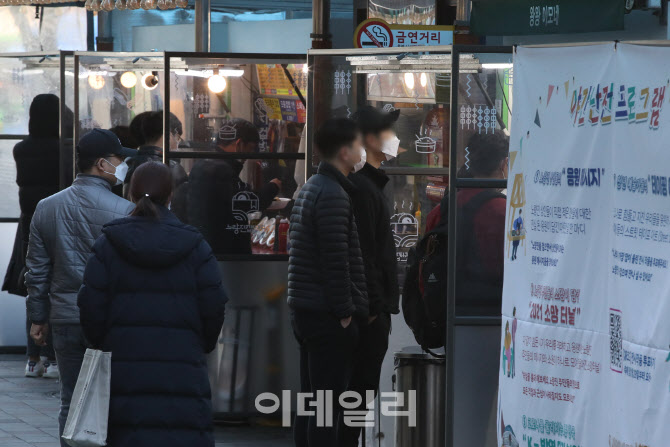|
[세종=이데일리 이명철 최정훈 기자] In the case of Jang Yeon-ho (29, pseudonym), a law major graduating from college next month, he gave up employment that made use of the related major in the narrower job statement. I was in a hurry to get a job, so I challenged the government-supported vocational training, but most of them concentrated on digital jobs such as coding, so there was no opportunity for law students to take advantage of. Eventually, he changed his career to graduate school. Jang sighed, “I wasn’t afraid to learn a new technique like coding right now,” and said, “I concluded that studying more and becoming a professional is a good choice for the future.”
The generation that received the greatest impact of Corona 19 was ‘2030’. Restructuring is a priority due to the higher employment threshold and low skill levels. The collapse of self-employment made it difficult to find even a part-time job, and the number of young people who had difficulties in earning a living increased significantly. As a result, the government is pouring out various support measures, but the table-top administration continues to be ineffective due to impatient policies.
According to the results of E-Daily’s analysis of microdata by the National Statistical Office on the 24th, it was found that 1.59,000 were pushed out of economic activity out of the total population of 1,3525,000 people in 2030 households (ages 20 to 39) during last year. One in 10 (11.5%). There are 290,000 people on temporary leave due to illness, accidents, or business sluggishness, and 669,000 people have a rest without doing anything. There are 550,000 unemployed people who are looking for a job but have not found a job. As more people gave up looking for work, the number of unemployed decreased compared to the previous year.
|
It is pointed out that the government is conducting vocational training programs by investing enormous budgets to stabilize the employment of youths directly hit by the Corona 19 incident, but its effectiveness is inferior due to lack of diversity and not catching up with changes in economic and social structures. The youth job program run by the Ministry of Labor has wide variations. The’Youth Digital Job Project’, which provides subsidies for hiring young people for the use of information technology (IT), has achieved all the goals (60,000 people).
The youth digital job program was supported by a maximum of 1.8 million won per month for six months, more than twice as much as the work experience support project (up to 800,000 won per month). With the rapid growth of the non-face-to-face industry, the active activities of companies in the digital field also had an impact.
The’Youth Work Experience Support Project’, organized as the 3rd additional remedial project (additional) project, supported only 24,000 people to about 53,000 recruitment plans, reaching 30,000 underachievers.
For example, the Korea Publishing Culture Industry Promotion Agency decided to hire 48 publishers for the work experience support project promoted last year, but the actual number of employees was only 25 due to insufficient applicants. It is not easy to get a job at a publishing company with 6 months of internship experience, and it is because of the perception that the publishing industry itself is a declined industry. The disappearance of demand itself also had an effect due to the reduced workforce due to the economic downturn. An official from the Ministry of Employment said, “Some places said they would hire 30 people, but only selected 3 people because they had no job.” The government eventually stopped the work experience business this year.
It is pointed out that the youth digital job program also has clear limitations. It is difficult for young people to gain practical experience as the government’s support projects are limited to simple subsidiary work or payment of allowances focusing on job security.
Tae-gi Kim, professor of economics at Dankook University, said, “The government says it supports jobs for the youth, but in fact, it is only at a level that is not much different from public jobs for the elderly.” We need an attitude to completely improve the regulation so that it can be done.”
|



